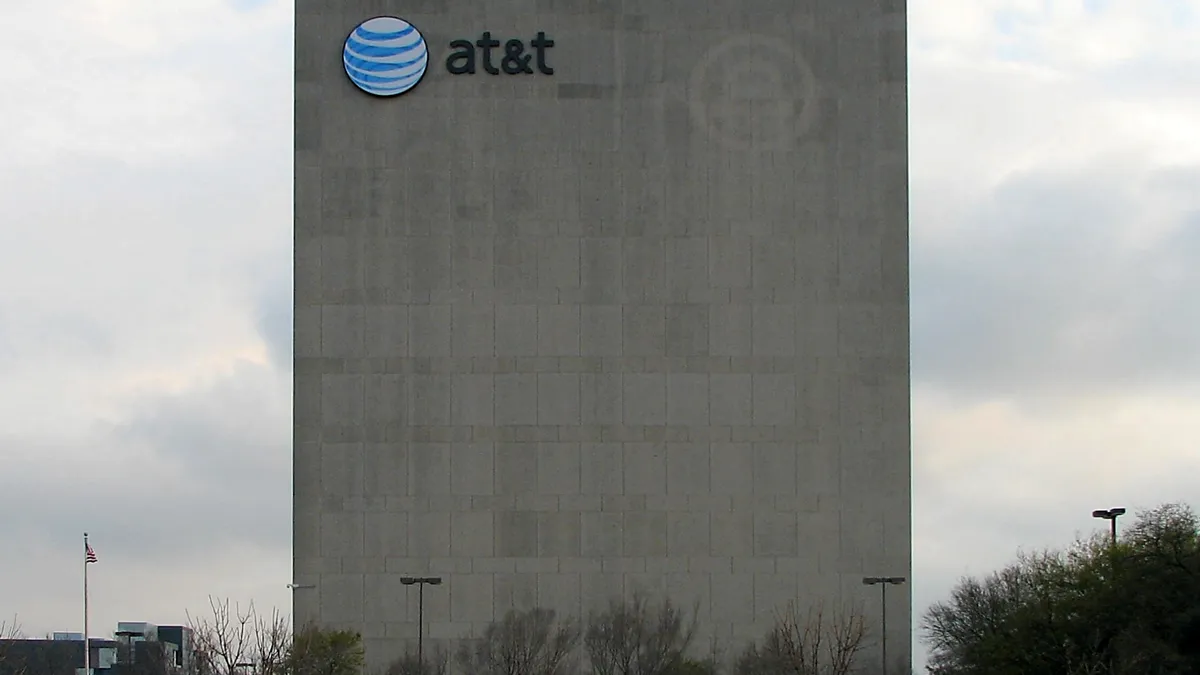Dive Brief:
- AT&T announced its rollout of "5G Evolution" technology in 117 new markets across 24 states and Puerto Rico.
- The company said in a press release the tech builds "on our 5G foundation,' with 5G Evolution capable of delivering theoretical peak speeds of up to 400 megabits per second.
- "As one of the fastest growing midsize city tech hubs, 5G Evolution means we’re now able to more rapidly create jobs, attract talent and launch new ventures," Indianapolis Mayor Joe Hogsett said in a statement.
Dive Insight:
AT&T has already been at the vanguard of 5G research and roll-out, including what it touted as its largest trial in Waco, TX. The company announced Atlanta, Dallas and Waco will receive its standards-based, mobile 5G network by the end of this year. There is something of an ongoing arms race in the technology, as AT&T and other companies including Sprint, T-Mobile and Verizon compete to get 5G first in cities across the United States.
But this "5G Evolution" has been derided in some quarters, especially last year when it was first rolled out. The Verge called the network "a meaningless marketing move designed to confuse customers and make AT&T seem like it has a technological leg up on the cutting edge of wireless technology" when it first appeared in 2017. The outlet took exception to the fact that 5G technology does not yet fully exist, and the technology AT&T is using for 5G Evolution it not what is considered 5G technology.
BGR noted after this latest announcement that 5G Evolution is simply AT&T’s name for LTE-Advanced technology, which already is part of the widely-available 4G framework. And the advanced technology requires a compatible phone — no iPhone devices can yet support it. Users must have one of the newest Android models to experience speeds close to what is promised.
In a blog post last week, AT&T Chief Technology Officer Andre Fuetsch defended the company from that criticism and argued 5G Evolution helps set the foundation for the roll-out of full 5G. "For example, before you can build out the playroom or open-concept kitchen, you need a strong foundation in place," Fuetsch wrote. "It must also be built the right way." He argued that boosting the current LTE network is "priming it for the future of connectivity," allowing an upgrade to 5G when it is ready.












